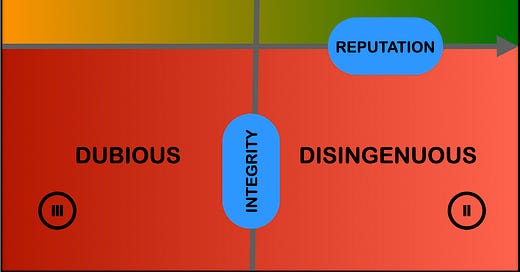195: Understanding Integrity And Reputation
Integrity is a personal quality, Reputation, on the other hand, is the collective perception of others
Reputation and integrity are distinct concepts that play different roles in shaping an individual's character and success. While reputation is influenced by external factors and public perception, integrity is rooted in personal values and ethical principles. Striving for integrity, not just a positive reputation, is the path to building a genuine and fulfilling life.
Integrity is a personal quality that refers to an individual's honesty, ethical behavior, and strong moral principles. People with integrity are considered trustworthy, reliable, and consistent in their actions. It is an internal trait that reflects a person's true nature and moral uprightness, regardless of external perceptions. In ethics, integrity is the consistency between a person's actions and their values or beliefs. It is the foundation of trustworthiness and reliability, as it indicates that an individual can be relied upon to do the right thing, even when nobody is watching. Integrity is honesty, consistency, accountability, and courage. It means being truthful, consistent in words and actions, taking responsibility, and standing up for what's right.
Reputation, on the other hand, is the collective perception and evaluation that others have about a person. It's the result of how one's actions, behaviors, and interactions with others are perceived and interpreted by the outside world. A good reputation is built over time through consistent positive actions, ethical behavior, and meeting commitments. It's essentially the public image that an individual or entity has developed based on their past actions and interactions.
The confusion between reputation and integrity arises when people focus primarily on external validation and public perception. They may prioritize actions that enhance their reputation, even if those actions compromise their integrity.
It is important to remember that reputation can often be misleading, it can be manipulated. A person may have a positive reputation, but that does not necessarily mean they possess integrity. This can lead to a false perception of their character.
In order to earn lasting respect, a person must consistently adhere to ethical principles, rather than simply managing public perception. True respect is built upon a foundation of integrity.





